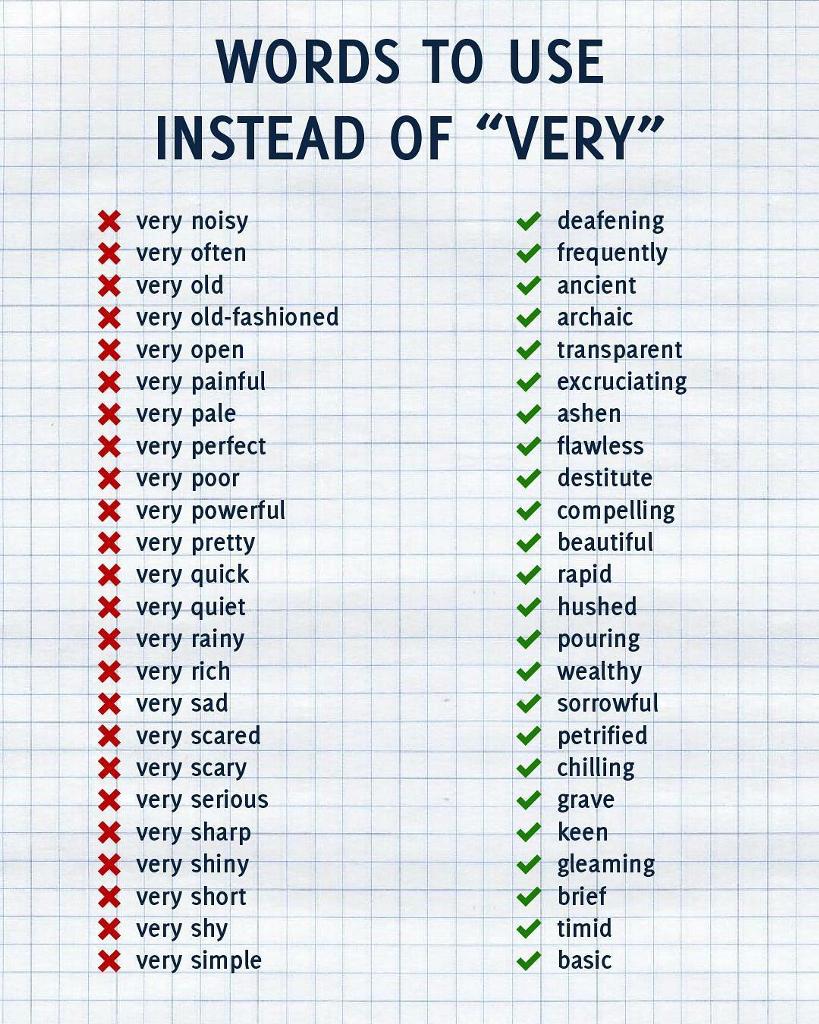You should avoid lists of words to avoid

People keep sending me word lists. “Use these words,” they say. “Don’t use these other words.” If you want to be a better writer, these lists are useless, because they don’t change how you think.
Words to ban from tech? This list is way too short
Robert Dean lists “20 bullsh*t buzzwords that should be banned from tech forever.” (C’mon, folks, can’t we spell out “bullshit” at this point?) Here’s the complete list:
Sync
Robust
Pain Point
Delight
Disrupt
Game Changer and Change Agent
Bleeding Edge
Dog Food
Alignment
Pivot
Revolutionary
Internet of Things
Bandwidth
Low-hanging fruit
Deliverables
Circle back
Action item
Take it offline
Buy-in
There are some loser words in there, but what’s interesting is why they’re annoying. For example, “game changer,” “bleeding edge,” and “low-hanging fruit” are cliches. “Revolutionary” and “robust” are weasel words (and I agree that they are useless.)
But “sync” and “alignment” are perfectly good words, perhaps overused in meetings. I personally don’t mind “take it offline” or “Buy-in.”
Internet of Things is a perfectly good description of the set of non-computing devices that connect to the Internet — a set of devices that are creating security and management challenges and opportunities. Despite Dean’s protest, it’s a useful description with a specific meaning — it encompasses connected door-locks and cameras, but not iPads and PCs. What, exactly, would you call this area of study if you couldn’t say “Internet of Things”? I’d rather not have to say “Connected non-computing devices” every time I write about it.
My main problem with this list, though, is that it delivers no insight. There are hundreds of weasel words. They are a problem because they are imprecise and unpersuasive. There are thousands of cliches. They are a problem because their repetition is boring. Once you know why a type of word is a problem, you can not only avoid it, but improve your thinking and your writing.
But at least this list isn’t actively harmful. Some others are.
Very is a problem. Here’s how not to fix it.
A friend shared Greta Vaitkeviciute‘s list of ways to avoid the word “very,” which more than 2,400 likes on LinkedIn.

I have no idea where this originated — whoever created it neglected to put their name on it, or somewhere along the way somebody cut it off.
I recognize that this set of words is intended to get fiction writers to be more vivid, but this is a dopey way to write better, because it replaces two vague words with one. Vague adjectives are a problem, whether they include “very” or not. “Frequently” is just as bad as “very often.” “Beautiful” is no better than “very pretty.”
A weasel word is a weasel word, whether it includes “very”or not. To fix it, replace it with something precise. Was the “deafening” environment “as loud as an airport tarmac” or “as loud as the front row at a rock concert?”
Stop saying “said?” The dumbest idea of all
“Said” is a good word. It doesn’t draw attention to itself. It’s clear. When quoting someone, say “said” and you can’t go wrong.
This is true in business writing, but also in fiction. Fiction that is filled with people spluttering and exploding and murmuring all the time is florid and jarring.
If you want to write in this annoying and silly way, though, I present this infographic, which reader Jenny Frost invited me to share:

Source: www.grammarcheck.net
Some better advice for avoiding lame words
If you’re looking for a fast and simple solution for avoiding poor word choices, these glib collections of advice — or anything similar — aren’t going to solve your problem. You need to come to grips with your habits that lead to words that undermine your writing. These include passive voice, jargon, weasel words, and cliches. It is not the use of these elements that undermines writing, it is their overuse. So here’s how to fix them:
- When you write anything, go back and look for these toxic prose elements.
- Rewrite with fresh, active, precise words where possible. You don’t need to eliminate every single passive voice sentence, every use of “very,” or every bit of jargon. You just need to eliminate most of them, leaving the ones that are effective.
- Become sensitive to these elements, so that you can catch them as you’re writing and fix them.
The best way to do this is to get a good editor, who can see the defects in your writing that you’ve become blind to.
Quick fixes don’t help. Avoid them. And never be afraid to write “said.”
Josh,
For what it’s worth, Elmore Leonard said, “Never use a verb other than ‘said’ to carry dialogue. He said that’s just the writer sticking his nose in.
the word that sticks most in the don’t use section of my head put there by my grade 5 primary school teacher – got – simply a very unpleasant word!
“We’re going to be reorganizing,” the CEO giggled.
Yep, that’ll work in business.
Let’s not forget “landscape.” The sports landscape, the sports media landscape, the political landscape, the business landscape…everything but the landscape landscape. “Ecosystem” is a new favorite of the language clods. Come to think of it, why the use of such many agricultural terms in jargon? Silos, granular, ecosystem, low-hanging fruit, landscape, etc. “Going forward,” “iconic,” “systemic,” “mindset,” “thought process,” and “thought leader” are inescapable. And “incredible” and “incredibly” are used as synonyms for “very” to describe the most mundane things.